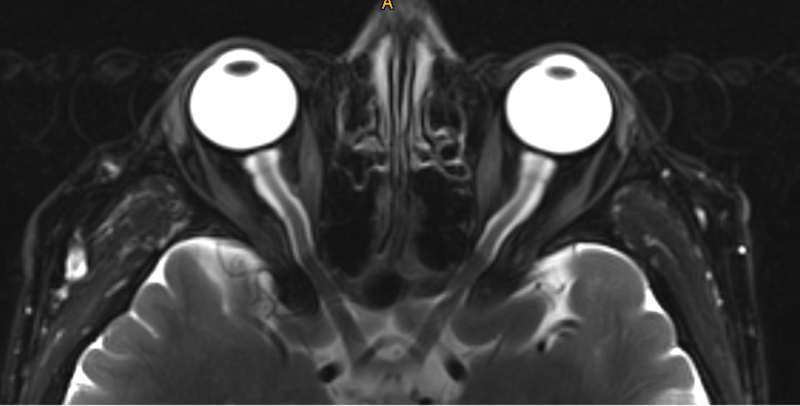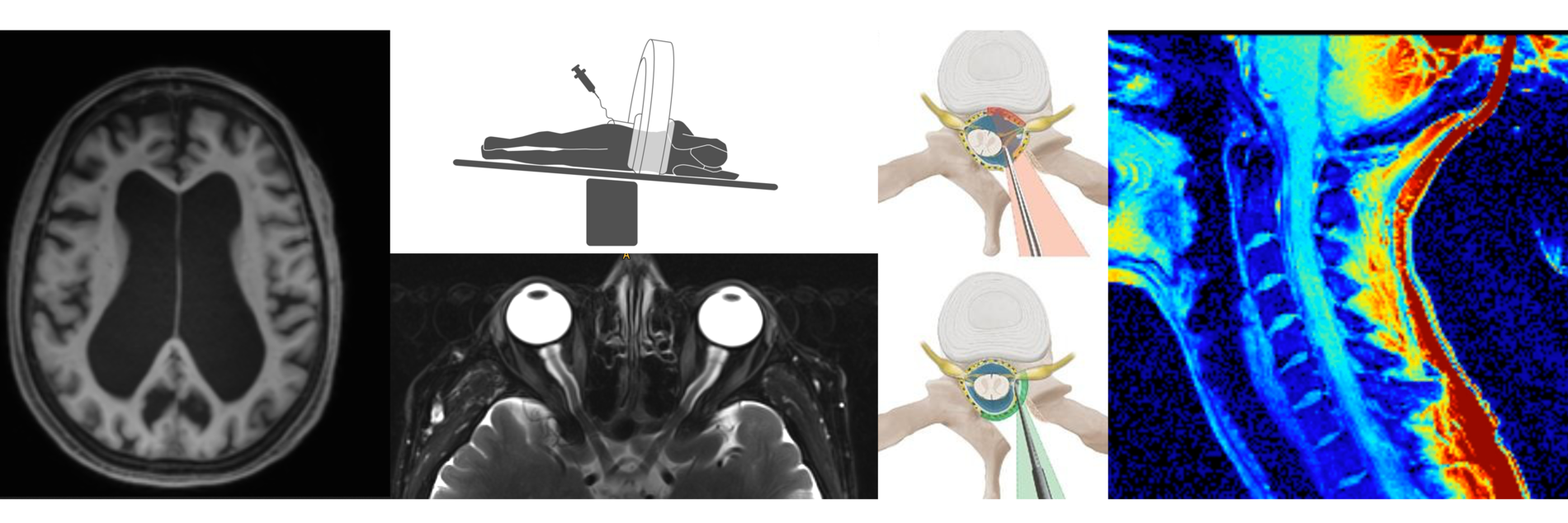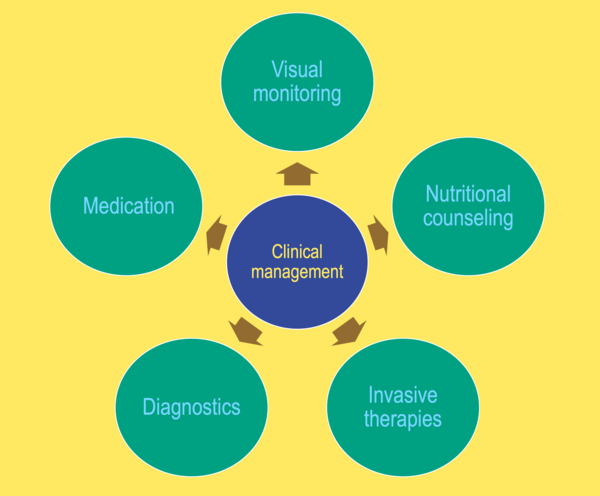Idiopathic Intracranial Hypertension (IIH)
What is IIH?
Idiopathic Intracranial Hypertension is a condition caused by increased pressure (=hypertension) in the head (=intracranial).
Idiopathic means that there is no direct trigger for the increased pressure, such as a mass, or sinus vein thrombosis.
Synonym: The obsolete term "pseudotumor cerebri" is no longer in use.

What are the symptoms?
Typically, there are signs of increased intracranial pressure with headaches, more in the area of the forehead and eyes, which increase when lying down. Nevertheless, it is well known and described, that the phenotype of headaches varies widely. In addition, visual disturbances or visual loss are often noted.
Other, more nonspecific complaints are frequently mentioned - nausea, sensitivity to light, double vision, ringing in the ears/ear pressure, worsening of symptoms with movement, difficulty concentrating. Paradoxical headaches that improve when lying down may also occur during the course of the disease.
IIH patients are disproportionately affected by migraine.
How is IIH diagnosed?
1. clinical-neurological findings = normal (exept for possible 6th cranial nerve abnormalities).
2. ocular fundus: papilloedema
3. exclusion of another cause of increased intracranial pressure by brain imaging, optimally MRI, with venography for non-typical cases, and by blood and CSF analysis
4. increased opening pressure in lumbar puncture (≥25 cm H2O).
5. Lack of alternative explanation

What are the risk factors?
The vast majority of affected individuals are women of childbearing age who are overweight.
The underlying contributing mechanisms are still unclear. Obesity appears to be an important factor. In addition to hydrodynamic causes, evidence points towards metabolic and hormonal interrelationship.
Yet is important to test for secondary intracranial hypertension with sometimes treatable cause.
Can there be permanent damage?
The main risk is a permanent visual impairment, even blindness.
UK-based figures showed a blindness rate of 1-2% within newly diagnosed IIH patients per year.
Is IIH common?
The incidence rate is currently reported at up to 28/100,000 per year. This rate is assumed to change depending on the incidence of obesity.

Is there IIH without a papilloedema?
IIH can also exist without papilloedema (IIHWOP - IIH without papilloedema). The diagnosis can be made in case of corresponding findings in diagnostics and in the presence of at least 3 signs in MRI:
- Empty sella
- Flattening of the posterior bulb
- Dilatation and distortion of the optic nerve sheaths
- Stenosis of the transverse sinus
How to treat IIH?
The basic treatment of IIH always requires an interdisciplinary team.
The main goal: Protect vision. Alleviate symptoms.
The basic building blocks are:
- optimal case management
- medical treatment
- weight reduction
- if necessary, to be implemented quickly and efficiently invasive therapies
- headache treatment
The following therapeutic and diagnostic options are available at our department in close interdisciplinary coordination:
- Initial diagnosis of suspected idiopathic intracranial hypertension (IIH) (contact)
- Primary diagnosis
- Exclusion of secondary causes
- Differential diagnosis of CSF dynamics via infusion test
- Outpatient consultation (contact)
- Therapy consultation IIH management
- Second opinion suspected IIH
- Consultation on invasive diagnostics
- Connection to nutritional medicine and dietetics section
- Consultation and indication for invasive therapy via interdisciplinary CSF Board.
- Stenting → Department of Neuroradiology
- Shunt → Department of Neurosurgery
- Optic sheath fenestration → Neuroophthalmology Section, Department of Ophthalmology
Here you will find guidelines for therapy in IIH.
Do you want to be advised and/or treated by us? contact us
Here you can find contact and information about the German Patient*Innen Initiative of the Deutschen Gesellschaft für intrakranielle Hypertension.
An overview of our research activities can be found here.
Klinik für Neurochirurgie
im Neurozentrum
Breisacher Straße 64
D-79106 Freiburg
Telefon: 0761 270-50010 /-50020
Telefax: 0761 270-50240
neurochirurgie@uniklinik-freiburg.de
Prof. Dr. Jürgen Beck
Ärztlicher Direktor
Telefon: 0761 270-50060
International call: +49-761-270-50060
j.beck@uniklinik-freiburg.de

André Doherr
Pflegedienstleiter
Telefon 0761 270-52260
Telefax 0761 270-54200
andre.doherr@uniklinik-freiburg.de
Moritz Wenk
Verwaltungsreferent
Augen- / HNO- Klinik / Neurozentrum
Telefon 0761 270-40650
moritz.wenk@uniklinik-freiburg.de







